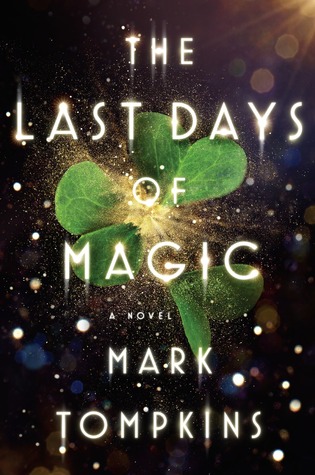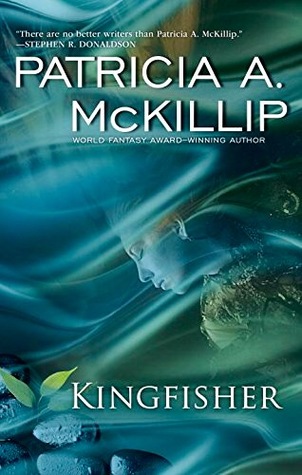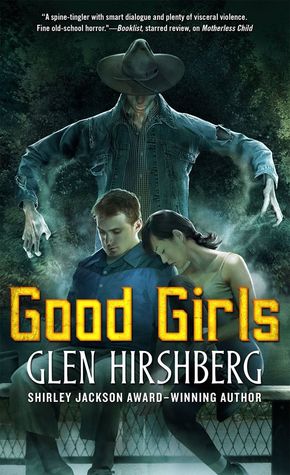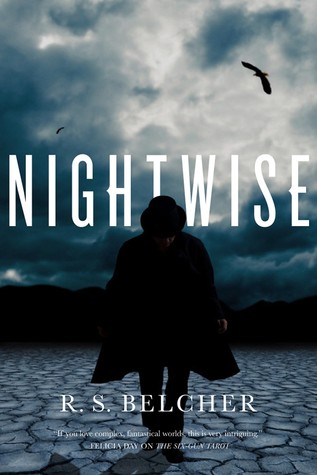Diving into a debut novel is always a bit of a gamble, but it can also prove exciting and extremely rewarding—especially when a book ends up surprising me or blowing away all my expectations. These are the moments I live for and this is exactly what I felt with Mark Tompkin’s The Last Days of Magic, a breathtaking historical fantasy saga about mysticism and mythology through the ages. I am absolutely in love with this novel and its premise, which posits that magic is real but merely forgotten, suppressed and denied. Today we dismiss the tales of the Sidhe as nothing but folklore and legend, but just a few centuries ago humans co-existed with all kinds of supernatural creatures, and in no other place was that bond stronger than in Ireland, the last bastion of magic against the encroaching powers of the Vatican Church. Much of island’s strength comes from the protection of its patron deity the Morrígna, a goddess whose three aspects come together to rule over the Celts and the Sidhe. One of Her aspects resides in the Otherworld as a source of power, while the other two—known as Aisling and Anya—are always reborn in the mortal realm…
Kingfisher is not your everyday fantasy, nor is it the kind of book I usually enjoy. Blurring the lines between genres, this ethereal and strangely abstract tale should have stymied me on so many levels, so no one is more shocked than I am at how deeply it resonated with me. It shouldn’t have worked for me—and in truth, not every aspect of the story did—but I did find certain elements greatly appealing. It helped too that I went into this book with no preconceptions and absolutely no clue what to expect at all. So I was surprised to discover early on that Kingfisher appears to be a retelling of—or at least, a story with many allusions to—the quest for the Holy Grail. It occurred to me then, that in spite of the popularity of stories about King Arthur and the knights of his court, I’ve not actually read much Arthurian fantasy. That being said, it doesn’t taken an expert to see that McKillip’s take on the genre is special, wildly inventive, and atypical of many others. The beginning of the book can only be described as abrupt, introducing us to Pierce Oliver in a brief scene helping out a…
Good Girls is the second book in the Motherless Children trilogy by Glen Hirshberg. I haven’t read Motherless Child, the first book in the series, but was assured this one can be read on it’s own as a standalone sequel. Having read it now, I think that, yes, it can be read without having read Motherless Child first, but I suspect my own enjoyment of this story would have been greatly enhanced had I read the first book prior to this one. One of the storylines in this picks up immediately after something very traumatic and horrific. Like seriously, standing in the carnage type of start to a story. I don’t know for sure, but I felt like this could have been the end of Motherless Child. Unfortunately, I wasn’t able to verify this, but I was able to verify some of the characters involved in this scene were primary characters in the first book, so it is definitely possible. Maybe it is just me knowing that there was as story prior to this, and so when we are “dropped into the action”, I can’t help but wonder if this the end of the first book. Either way, I may have had some serious WTF just happened moments…
Here’s a rundown of the books we think you should look out for in coming in the week. See any that you are really looking forward to? Find any you had not heard of yet? Know of books we missed? We know we don’t have everything and would love to hear what you feel we may have overlooked. FANTASY URBAN FANTASY SCIENCE FICTION FANTASY URBAN FANTASY SCIENCE FICTION FANTASY URBAN FANTASY SCIENCE FICTION
I loved the first two books in Rod Belcher’s Golgotha series, and I was curious to see what else he could do. And boy am I glad I picked up this book! I was blown away by his fascinating magic system, not to mention the characters. Best of all, Belcher has some mad writing skills, in case you appreciate that sort of thing, which I do. While his Golgotha books contain multiple points of view, this story is told in first person from the perspective of Laytham Ballard, a powerful wizard with an attitude problem, who blazes through his friends and enemies—often killing them in the process—in order to get what he wants. Belcher definitely takes a risk with Laytham, because he is not a likeable guy at all. But the fact that he freely admits to everyone around him that he knows he’s an a-hole made him compelling, and yes, I grew to like and even sympathize with him by the end of the book. But there is so much to love about Nightwise besides the characters—and I’ll get to them later, because there wasn’t one in the bunch that I didn’t enjoy. Belcher starts with a simple but strong…





